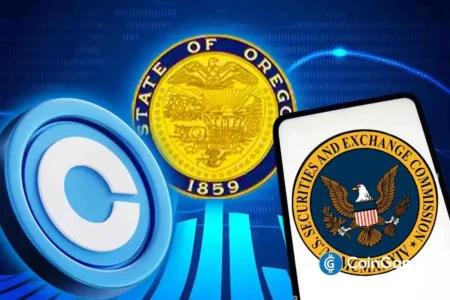Trump-Backed WLFI Welcomes New Advisor Bilal Bin Saqib: A Strategic Step Forward
On April 15, the World Liberty Financial Initiative (WLFI), a crypto project endorsed by Donald Trump, announced a significant addition to its advisory board: Bilal Bin Saqib. This British-Pakistani entrepreneur and angel investor brings a wealth of experience and innovative thinking to WLFI, particularly following the launch of its new stablecoin, USD1. As a graduate of the prestigious London School of Economics and a Forbes 30 Under 30 honoree, Saqib embodies the fusion of social entrepreneurship and technology, which could enhance WLFI’s mission and global perception.
Bilal Bin Saqib: A Profile of Impact
Bilal Bin Saqib is widely recognized for his impactful work, particularly in social entrepreneurship. His non-profit organization, Tayaba, has transformed access to clean drinking water for underserved communities in Pakistan through innovative solutions. Additionally, during the COVID-19 pandemic, his campaign One Million Meals served over a million meals to NHS frontline workers in the UK, showcasing his commitment to social causes. Saqib’s expertise extends beyond philanthropy, as he has actively participated in venture capital and technology start-ups, with a focus on the burgeoning fields of Web3 and sustainability. By joining WLFI, Saqib aligns himself with a politically-backed initiative, signaling a new phase in his career and expanding his global influence.
WLFI’s Advisory Board Strengthened
The appointment of Bilal Bin Saqib comes at a crucial time for WLFI as it seeks to establish itself in the competitive DeFi landscape. The advisory board already boasts an impressive roster of members, including Justin Sun, the founder of TRON, and others from various sectors of the cryptocurrency and technology worlds. This diverse expertise provides WLFI with a multi-faceted approach to navigating the rapidly evolving financial ecosystem. Saqib’s addition is anticipated to bring additional credibility and insight, especially as WLFI looks to grow its decentralized finance (DeFi) protocol and operational capabilities.
Reassessing WLFI’s Branding Strategy
Despite its roots in Trump-endorsed initiatives, WLFI positions itself as a platform for “freedom-centric finance,” challenging traditional financial systems often accused of censorship and centralized control. The project strives to resonate with those who feel marginalized by big financial institutions and seeks to appeal to a broader audience. Bilal’s presence on the advisory board may help the organization reshape its image, transforming perceptions from a strictly right-wing entity into a more inclusive financial liberty platform. His background in social impact could help to soften WLFI’s image, attracting supporters from diverse backgrounds and promoting a vision of decentralized finance accessible to all.
New Opportunities for Strategic Partnerships
Bilal Bin Saqib’s appointment also opens new avenues for strategic partnerships, particularly in regions such as the Middle East and South Asia, where he has established fruitful philanthropic and entrepreneurial relationships. By working in these emerging markets, WLFI can leverage Saqib’s network and expertise to foster collaboration and expand its influence. This is particularly pertinent given the growing interest in cryptocurrency and blockchain technology in these regions. As WLFI aims to establish credibility on a global stage, it may look to align its efforts with local initiatives, thereby driving engagement and adoption in areas where traditional banking services are often limited.
Looking Ahead: The Future of WLFI
As WLFI prepares for its public demonstration in Q2 of 2025, the scrutiny on its advisory board’s ability to balance decentralized technology with global policy becomes increasingly vital. With Bilal Bin Saqib on board, WLFI not only diversifies its advisory capabilities but also strengthens its potential to impact the crypto landscape positively. If WLFI can successfully integrate Saqib’s vision of democratizing resources through blockchain, it may evolve into a formidable player in the world of decentralized finance—not solely as a politically driven project, but as a catalyst for financial empowerment worldwide.
In summary, WLFI’s recent strategic advisor appointment marks a pivotal moment in its journey. Bilal Bin Saqib’s wealth of experience, particularly in social entrepreneurship and technology, aligns with WLFI’s ambitions to reshape finance by promoting ethical practices and expanding access to financial systems globally. As it navigates this new phase, WLFI could redefine its narrative and establish itself as a leader in the progressive intersection of finance and technology.
Important Note
Investors and interested parties are urged to conduct thorough market research before engaging with cryptocurrencies or related projects. The market remains volatile, and the content provided may represent the author’s personal opinions. Neither the author nor the publication holds any responsibility for potential financial losses incurred by individuals.
















